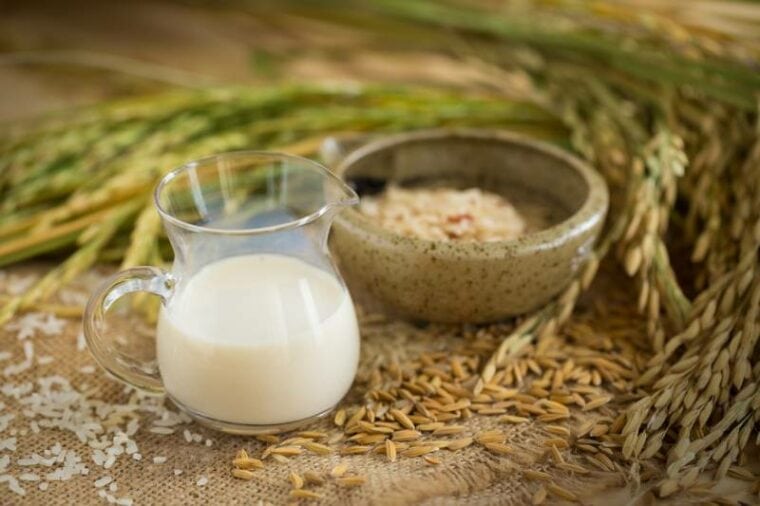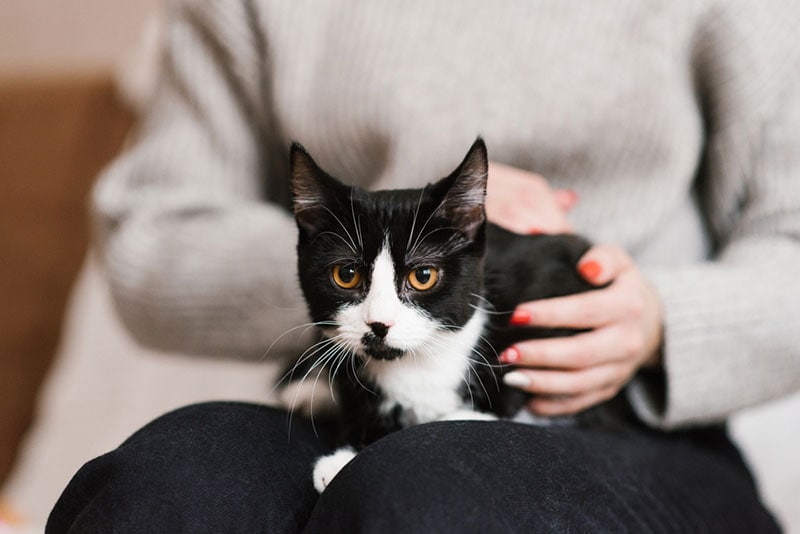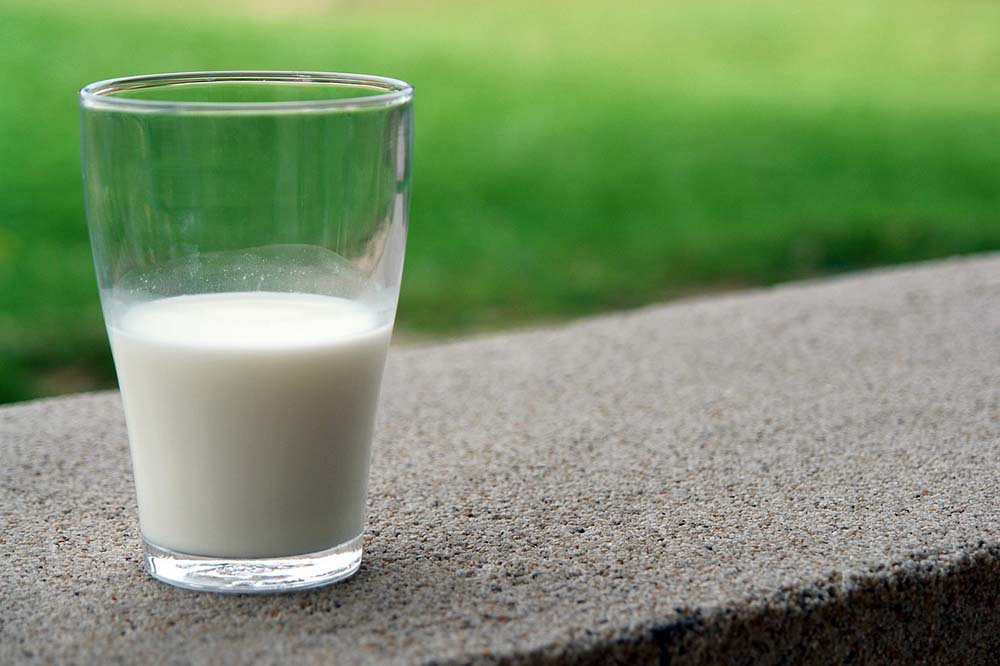
Click to Skip Ahead
If you’ve recently discovered rice milk, you may wonder if it’s okay for your cat to have a taste or two. Like many things regarding cats and human food, the answer is complicated! Rice milk, at its core, consists of rice and water, which are perfectly fine for cats. Rice, however, should only be consumed in moderation since cats generally obtain nutrients more efficiently through animal sources. Rice milk often contains fats, preservatives, and thickening agents, and many companies fortify their products with vitamins and nutrients. Some add sweeteners and flavorings, such as chocolate, that can harm cats. Ultimately the only way to determine if a rice milk product is safe for your cat is to evaluate each ingredient individually for safety. If in doubt, avoid.
How Do I Figure Out if a Product May Be Toxic?
To determine if your cat can safely consume a particular product, analyze what’s in it. Make a list of all the ingredients and consult a solid resource with accurate information about veterinary toxins and poisons. The American Society for the Prevention of Cruelty to Animals (ASPCA) has information about foods, plants, and other products that can cause kitties problems. It’s often easiest to avoid giving cats human food and products prepared to appeal to a human’s taste preferences.

What About Basic Unsweetened Rice Milk?
Most rice milk contains rice, water, vegetable oil, and salt. Rice is generally fine for pets to consume, but it’s not something cats need in their regular diets. Because cats are obligate carnivores, they obtain nutrients most efficiently through animal products. Safflower, canola, and sunflower oils are sometimes added to tweak rice milk’s consistency, and salt is often included to improve how it tastes. Most vegetable oils are okay for cats to consume in limited amounts.
Why Are Some Brands Safer Than Others?
The problem comes from the sheer variety of rice milk products that are available to consumers. Because each company has a proprietary recipe, evaluating each product is the only way to keep your cat safe. Treats should make up no more than about 10% of a cat’s diet to maintain a healthy weight.
What About Other Plant-Based Milk Choices?
The same process of ingredient analysis needs to be applied to all plant-based milk products, including oat, almond, and soy. Oats, almonds, and soy aren’t toxic to cats, but they should only be consumed in limited amounts. Almond and soy milk are typically high in fat, and some soy milk is high in calories.
Like rice milk, these products usually contain various taste enhancers and thickeners that aren’t great for cats. The occasional consumption of these products in limited quantities isn’t likely to cause most healthy cats major problems. But the best way to ensure your buddy stays happy and healthy is to stick with high-quality commercial pet food and limit your cat’s access to treats and human food, including plant-based milk products.

Can Cats Drink Milk?
It largely depends on the cat! Some adult cats have trouble digesting lactose and can experience nausea, diarrhea, and vomiting after a few laps of milk. But other cats don’t have trouble with dairy products. There are also commercial cat milk products available that are designed to be easy on feline tummies, and cats with milk sensitivities can often enjoy them without becoming sick.
Some cats that can’t drink regular milk can still handle butter, yogurt, and cheese since they have less lactose. However, even cats that don’t have trouble digesting dairy products should only enjoy these tasty options as special treats.

Can Cats Eat Vegetables as Snacks?
Cats, in general, aren’t fans of plain vegetables, but if your cat likes the taste of broccoli or asparagus, they can enjoy a bite or two. Just make sure whatever your buddy eats has been prepared in a cat-friendly manner, such as steaming the veggies without added butter or salt.
However, never feed onions, garlic, or any members of the allium family because they’re toxic to pets. Although technically a fruit, Pumpkin is packed with important nutrients such as vitamins A and E. It’s also a great source of fiber which can encourage regularity in cats. Canned pumpkin is fine as an occasional snack for most cats, but stay away from pumpkin pie filling since it contains too much sugar and spices like ginger and cinnamon.

What About Other Types of Snacks?
Cats can eat cooked eggs and properly prepared fish and meat. When making treats for your cat, simplicity is the key. Cats can happily enjoy small amounts of hard-boiled eggs but avoid fancy options like omelets that often include onions. To prepare a meat or fish treat for your cat, just throw the chicken, fish, or beef in the oven and cook until it’s well done.
Raw and undercooked products aren’t safe for cats since they often contain harmful bacteria that can make them ill. Make sure to remove all bones and chop everything up into bite-sized pieces to keep your cat from biting off more than they can safely chew.
Conclusion
Simple, unsweetened rice milk is generally fine for cats to consume, but even the simplest commercial options often include salt and other products that cats don’t need. While a lap or two of rice milk won’t hurt most cats, it’s not beneficial to their diet. Commercial products can also contain ingredients that cats really shouldn’t eat, such as chocolate. The best way to determine if a rice milk product is okay for your cat to consume is to analyze each ingredient. If ever in doubt, consult your cat’s veterinarian.
Featured Image Credit: Kaiskynet Studio, Shutterstock







